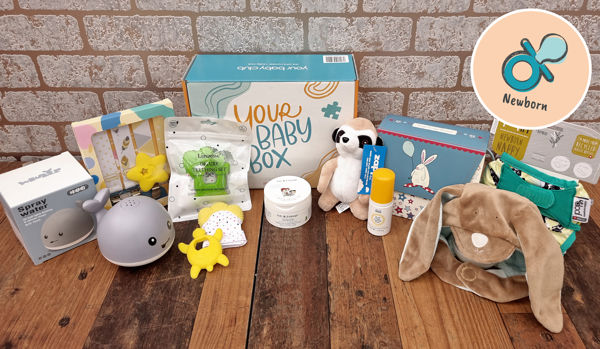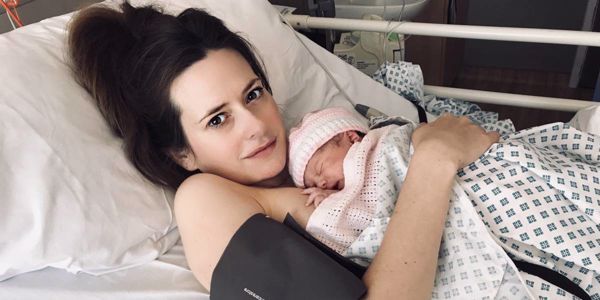Navigating pregnancy can seem like a minefield, with appointments, scans, and well-meaning advice from friends, family and even strangers! Just when you think you have a handle on it, you flick through your hospital notes, and you suddenly feel like you need to learn a new language!
Your maternity notes keep records of your pregnancy journey. They are put together at your first antenatal appointment and are filled in by medical staff at every appointment to keep track of both you and your baby. You will take these away in a folder or book, and you’ll need to bring them to every appointment, scan, and test, as well as have them with you when you go into labour so that any nurse, midwife, or doctor can have your comprehensive notes and know all about you and what care you need.
We’ve put together a list of terms and abbreviations that you may come across in your notes or hear in conversation to decode them and make them easier to read and understand.
What’s in Your Notes?
- · Your details - name, address, contact number, NHS number, next of kin, your partner’s details (if applicable).
- Details for your midwife - your GP, antenatal clinic, birth suite, and hospital contact numbers.
- Your medical history, in detail - current/recent illnesses, medications, and mental health.
- Family medical history of diseases and genetic conditions.
- Info on any previous births, pregnancies, or infant loss.
- · Dates of appointments and your EDD.
- Blood test results, ultrasound scans and screening test results.
- Blood pressure readings, urine tests, vaccinations, fetal movements, heart rate and baby’s position.
- Tracking of your baby’s growth in the womb.
- · Your birth plan - place of birth, type, pain relief options, birth partner, etc.
Antenatal (Before Birth)
Abx - Antibiotics
AC - Abdominal circumference - your baby's tummy will be measured during ultrasound
AF - Artificially feeding - both feeding
A/N - Antenatal - before baby is born
ANC - Antenatal clinic
AP - Abdominal palpation - your midwife feeling your bump
APH - Antepartum haemorrhage - bleeding during pregnancy
BMI - Body mass index
BPM - Beats per minute - how fast your baby’s heart is beating
CVS - Chorionic villus sampling - a diagnostic test for fetal abnormalities
DAU - Day assessment unit
ECV - External cephalic version - turning a breech baby
EDD - Estimated date of delivery
EPU - Early pregnancy unit
G - Gravida - how many times a woman has been pregnant
GBS - Group B streptococcus
HC - Head circumference
HVS - High vaginal swab
P - Parity - how many babies a woman has given birth
SFH - Symphysis fundal height - the measurement of your bump
SPD - Symphysis pubis dysfunction AKA pelvic girdle pain
UTI - Urinary tract infection
Antepartum - During Labour
ARM - Artificial rupture of membranes - having your waters broken
BBA - Born before arrival - baby not born in hospital as planned
BP - Blood pressure
CDS - Central delivery suite - also known as labour ward
CEFM - Continuous electronic fetal monitoring - generally by CTG
Ceph - Cephalic - baby’s head is coming first
CMV - Cytomegalovirus - this is also known as herpes virus
CTG - Cardiotocography - machine used to monitor baby’s heart during labour
Cx - Cervix
EBL - Estimated blood loss
EFM - Electronic fetal monitoring
EL LSCS - Elective lower segment caesarean section
EM LSCS - Emergency lower segment caesarean section
FBS - Fetal blood sampling
FH - Fetal heart
FM - Fetal movements
FMF - Fetal movements felt
FSE - Fetal scalp electrode
GDM - Gestational diabetes
IDDM - Insulin dependent diabetes mellitus
IOL - Induction of labour
IM - Intramuscular - refers to injection
IV - Intravenous
IVI - Intravenous infusion
LFT - Liver function test
LSCS - Lower segment caesarean section
NAD - No abnormality detected
NBFD - Neville Barnes forceps delivery
PET - Pre-eclampsia
PPROM - Pre-term pre-labour rupture of membranes
PROM - Pre-labour rupture of membranes - waters broken but contractions not commenced
SVD - Spontaneous vaginal delivery
SB - Stillbirth
TENS - Transcutaneous electrical nerve stimulation
Baby’s Positions
LOA - Left occipito anterior
LOP - Left occipito posterior
LOT - Left occipital transverse
OA - Occipito anterior
OT - Occipito transverse
ROA - Right occipito anterior
ROL - Right occipito lateral
ROP - Right occipito posterior
ROT - Right occipito transverse
'Occipito' refers to the back of a baby's head.
Postnatal - After Birth
BF - Breastfeeding
BNO - Bowels not open - can refer to yours or your baby’s bowel movements
BO - Bowels open - can refer to yours or your baby’s bowel movements
BW - Birth weight
CCT - Controlled cord traction - refers to gentle pulling on the cord to deliver the placenta
DOB - Date of birth
DVT - Deep vein thrombosis
EBM - Expressed breastmilk
MROP - Manual removal of placenta
NPU - Not passed urine
PN - Postnatal
PPH - Post-partum haemorrhage
Blood Tests, Screening & Investigations
AFI - Amniotic fluid index - this is the measure of amniotic fluid around the baby
Amnio - Amniocentesis - a test to test for certain chromosomal abnormalities
FBC - Full blood count
GTT - Glucose tolerance test
Hb - Haemoglobin
LVS - Lower vaginal swab
MSU - Mid-stream specimen of using
MOEWS - Modified obstetric early warning chart - where your observations are recorded
X-match or XM - Cross matching blood - in preparation for a possible transfusion
Your Care Team
CMW - Community midwife
Cons - Consultant
MCA - Maternity care assistant
MW - Midwife
Registrar - Senior doctor
SHO - Junior doctor
SMW - Senior midwife
SpR - Specialist registrar
StMW - Student midwife
This is not an exhaustive list so if you see something you don’t understand just ask!










